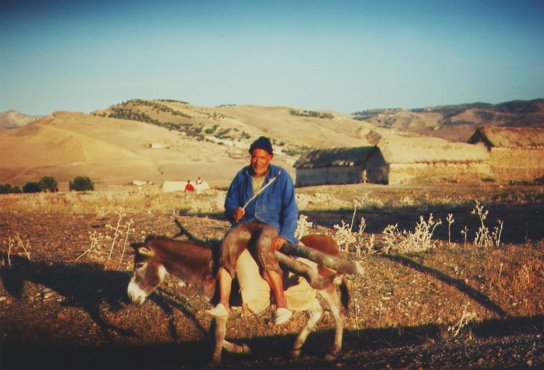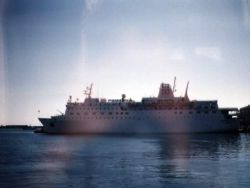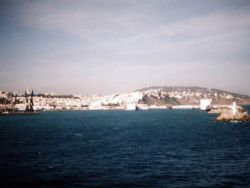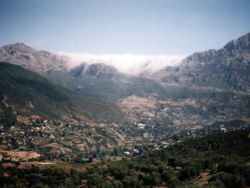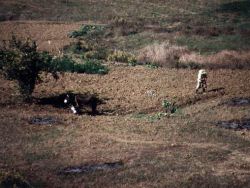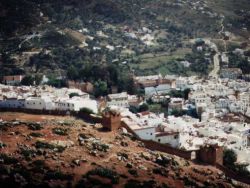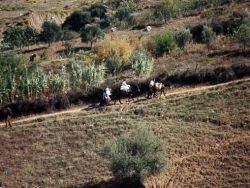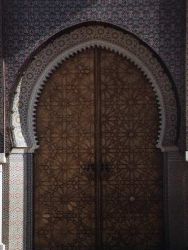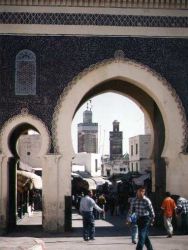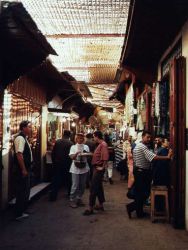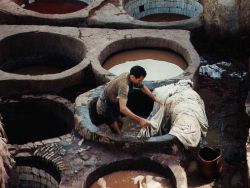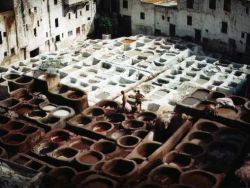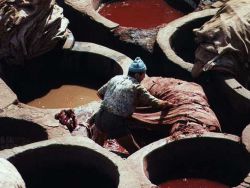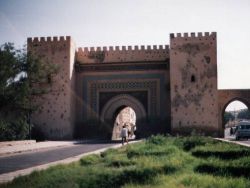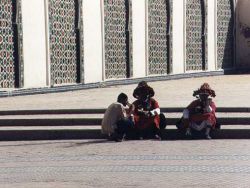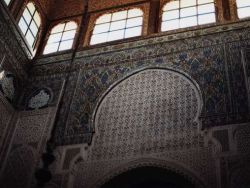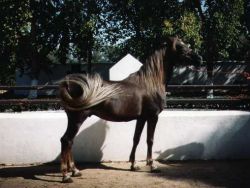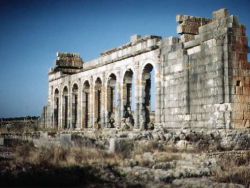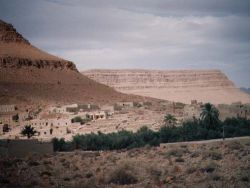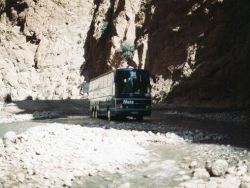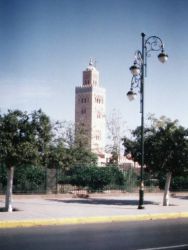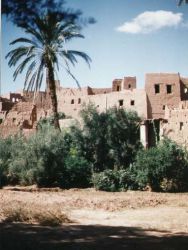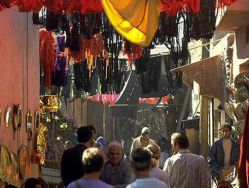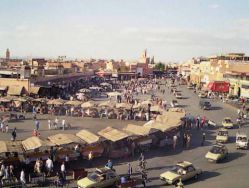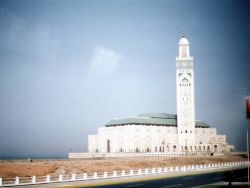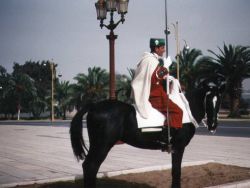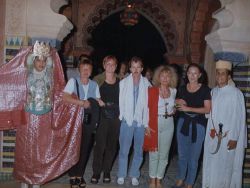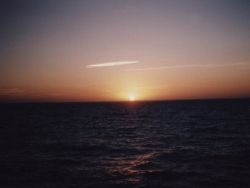Morocco - Kasbahs, Deserts and Oases
Kasbahs, Berber and nomads. These are only some catchwords which describe Morocco.
Our tour leads us to splendid palaces in the king towns, old towns full of corners with its Souks, powerful sand dunes, dream beaches, green oases and breathtaking mountains panoramas. Just Orient pure.
Our tour starts with a journey to Sete in the South of France.
Here we embark on the "Marrakech" with our bus, a ferry ship which brings us along the Spanish coast and by the road of Gibraltar to Tangier within two days.
Our journey runs through Tangier to the foothills of the Rif mountains.
We go past river beds dried out and pink oleander to Chefchaouen and till to Ouezzane.
The more highly we come, the more monotonous the landscape gets. Green can be only seen occasionally replete. Farmers try in arduous work to wring food and food for the cattle from the meager floor.
With donkeys and mules the fruits of the work are taken away.
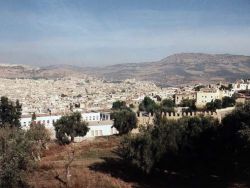
Fes, the oldest of the king towns, is our starting point in the town and the surroundings for the reconnaissance of the sights for three days.
They have been a cultural and religious center of the Maghreb culture for centuries.
Wonderfully decorated gates are, as here, typical of the Moroccan style for the Nehassa gate which leads to the royal palace in Fes and the town gate Bab Bouleloud, the entry to the Medina.
Dealers offer their goods in the narrow lanes full of corners of the old town.
One can watch the activities of the craftsmen in their laborious work from a terrace in the tanner quarter. One shouldn't have any too sensitive nose at these pungent smells, though. The needed water is taken from a flowing rivulet.
The city of Meknes is located on a plateau which is fertile and used agriculturally intensively. The surroundings are regarded as granary of the country and leading wine-growing area.
The arts and crafts flourish with wood paintings, ceramic and embroideries, in the town which was characterized by Moulay Ismail, an earlier ruler primarily.
In front of the mausoleum Moulay Ismails traditionally dressed water sellers are waiting for customers.
Marvelous horses are cultivated in the former royal stud farm
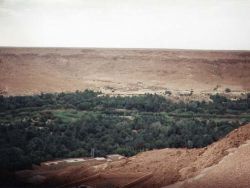
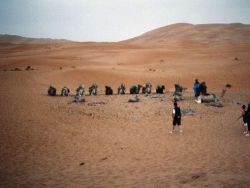 The roman city of Volubilis was build in the first century.
The roman city of Volubilis was build in the first century.
The remains show a typical provincial town with capitol, forum, basilica, triumphal arches and thermal springs with beautiful floor mosaics.
The next section of our journey runs through the high atlas and the meager presahara to the narrow ravines of the Ziz. Feels further by the Tafilalet, the biggest palm oasis of Morocco, to the oasis Erfoud.
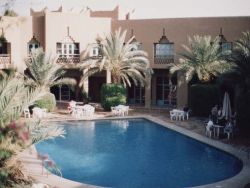
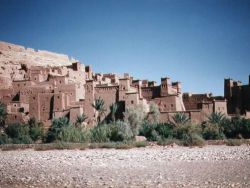
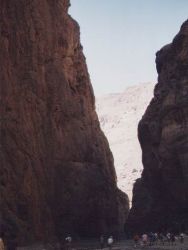
We experience the sundown at a camel ride by the dune countryside of the west Sahara.
After a night in a hotel from the "Thousand and One night" we drive on to Ouarzazate, from where we find out the Dades ravines.
The valley of the Dades is primarily famous because of its numerous Kasbahs. These mostly two-storey buildings were and are set up from clay bricks and decorated with ornaments.
Remarkable buildings have to be inspected also in Tinerhir, a town laid out in the middle of the greenery on terraces.
A highlight of our journey is the stay in Marrakesch, one of the four king towns. We find the colored, busiest and greatest Souks in the Medina in the whole country. The town itself is given relief with many parks and laid out lovingly decorating bushes.
Jemaa El Fna Square with its market stands changes into a circus arena every afternoon. Snake cursers, fortunetellers, magicians, wonder doctors and clowns provide entertainment.
We still find the time for a short excursion to Casablanca on the way back to Tangier. The most prominent building is the mosque Hassans II. The making was made possible by donations the ruler called for for the population.
Of course a tour by Tangier, the last destination of our journey, mustn't be missing either.
We celebrate the conclusion of our journey with a Fantasia.
After a short night we go onto the ship to begin the return journey from the pure Orient to modern Europe.
